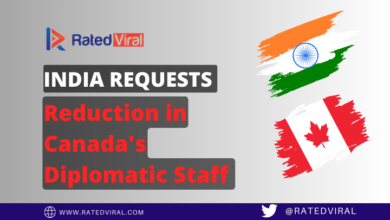Improving Canada’s Mental Well-Being after Pandemic
Improving Canada’s Mental Well-Being after Pandemic
The good news is more and more people are increasingly becoming conscious of their mental well-being.
Mental health week is coming up in May; many Canadians have been impatiently waiting for this day to cope with the mental trauma they are facing in daily life. We can blame the COVID-19-or perhaps thank it for developing awareness among the people about mental health. It is because of the pandemic that mental health and mental illness have become a top priority among Canadians. Also, there are warnings on the parts of experts that unless we start addressing this issue seriously there will be mental health tsunami which will wash over the country.
The good news is that people are discussing mental issues with each other on a daily basis while the bad news is that things appear to be getting worse. Listening to the news, one knows about people being stabbed, shoved off subway platforms, grabbed by strangers, or even shot to death while going about their business. This fear reveals that the whole nation seems to be losing grip on the problem when set against the backdrop of all the terrifying incidents that just scream a crisis is terrible.
There are plenty of industry reports and states with us to back this up: it has been revealed in the recent research that more than half of Canadians have suffered from feelings of anxiety, depression and loneliness. According to the recent Mental Health Index by LifeWorks, Canadian workers’ mental condition is lower than the pre-pandemic benchmark of 0.0.
Are we seeing more people suffering from mental stress? Absolutely yes, says Dr Monica Vermani clinical psychologist and author of A Deeper Wellness: Conquering stress, mood, anxiety and Traumas. “Because of the increasing uncertainty of times, the sudden occurrence of changes in reality due to COVID and the lock-down people have largely struggled to manage stress and stressor-related to the pandemic, people have certainly suffered.”
You can also read: Sean Penn Became Legally Single After their Divorce From the Actress Finalized
“The past two years have put enormous strain on the population. These two years have worsened the existing mental health issues, we have observed an increase in the ‘edge’ meaning impulsive behaviours, anger, and cynicism,” said, LifeWorks’ Pullen Allen senior V-P in research and total well-being, in a recent interview.
It is important, said Allen, “to take into account whether someone is dealing with a diagnosed mental illness or not, lack of unpredictability, ongoing change and increase in isolation has had an impact on our mental well-being. There is a need for more focused support on improving the clinical services and self-awareness now, and in the time to overcome to ensure normalcy in Canada.”
In the like way, it is also important to make sure that how mental health differs from mental illness: Mental health is about a state of mental and emotional well-being- when someone is mentally fit, he is in a better position to cope with normal stressors and contribute to the betterment of the community in a productive way,” said Vermani in a recent interview.





